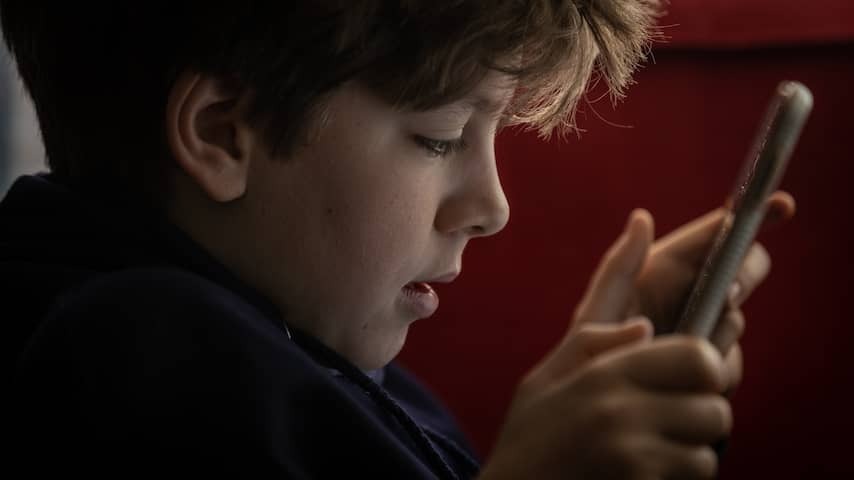
In the United Kingdom, websites have been required to implement strict age verification measures since last weekend to prevent children from accessing inappropriate content. Solutions are also being sought in the Netherlands. The goal is a safer internet, but there are concerns about privacy and censorship.
Under the new British Online Safety Act, simply clicking a button to prove your age is no longer sufficient. According to the law, websites must implement highly effective controls to protect children from certain content. This mainly concerns pornographic images and messages that encourage, for example, suicide, self-harm, or eating disorders.
If websites do not take measures, they risk high fines. In addition, directors of underlying companies can be prosecuted.
To pass the age verification, users can show their bank card or a copy of their passport. They can also use a facial scan that estimates how old someone is.
The websites and services that want to continue operating in the United Kingdom must not only build in age verification measures. They must also adjust their algorithms to filter out harmful content for children. In addition, they must annually assess whether the measures taken are still sufficient.
Media regulator Ofcom says that over six thousand porn sites in the UK have implemented age verification. Other platforms, such as Discord, X, Bluesky, and Grindr, have pledged to do so, according to Ofcom. Age checks are also required for some Reddit forums.
Brits looking for detours
Many Brits are already using detours to get onto the sites without age verification. Market analysis firm Sensor Tower sees an “explosive growth” in the number of VPN installations in the country. With such a VPN, Brits can pretend to log in from a country where the new rules do not apply.
For example, Proton VPN has seen an increase of 1,800 percent, writes Wired. And the company behind NordVPN has sold 1,000 percent more subscriptions since the introduction of the law.
Users also fooled the facial scans of some websites by showing an image of the main character from the game Death Stranding.
Not a watertight system
Dave Maasland, director of cybersecurity company ESET Netherlands, thinks that teenagers will end up in shady places without any content monitoring due to the strict age checks. “You can compare it to alcohol sales,” he says. “Young people who are not allowed to buy alcohol at the supermarket, buy it from someone who takes it out of his jacket in an alley.”
The online translation is that children, for example, get to see more violent images and that they have to deal with websites containing malware and viruses. “Or with websites that store all kinds of sensitive information.”
Robbert Hoving of online expertise center Offlimits shares those concerns, but believes that doing something is always better than doing nothing. “It remains a cat-and-mouse game,” he says. “That’s why you have to go after sites that don’t comply with the rules and sanction them severely. Not only with high fines for the companies, but also by tackling directors financially. That deters.”
Furthermore, Hoving believes that there should be alternatives for teenagers. “Pubers just want to see things. That’s why there must be a supply of age-appropriate material,” he says. For this, he refers to sexual education that can be found in the Netherlands, for example, via knowledge center Rutgers.
An app is also coming in Europe
Several European countries are currently experimenting with an age verification app from the European Commission, which will eventually also work in the Netherlands. With this, people can prove to websites that they are old enough without sending further information. They do this by linking the app to a reliable authority, such as a bank or a government service like DigiD.
The age verification is then stored encrypted in the app so that no one can access it. The app only confirms whether someone is old enough, without sending a date of birth. The check takes place in the secure app, not on the website.
Maasland thinks that Europe is doing that neatly so far. He compares it to a coin that you used to have to get at the bar in the pub for the cigarette machine. “There you showed your ID, the person behind the bar did the check and gave you a coin or not,” he says. “Then the information was forgotten again. Soon a digital version of that coin on the phone will indicate whether someone is old enough.”
But the usefulness of this app is also doubted. Sites and services are not yet required to use the solution.
Concerns about censorship
There are also concerns about a slippery slope. “In the Netherlands, we attach great importance to net neutrality,” says Maasland. Websites that do not want to comply with the rules and want to avoid high fines will probably withdraw from the country where the laws apply.
“Will the free internet still stand if we start imposing blockades?” Maasland wonders. “And what happens if a government ever comes to power that also wants to ban other parts of the web? We need to think about that, even now that it is not yet the case.”